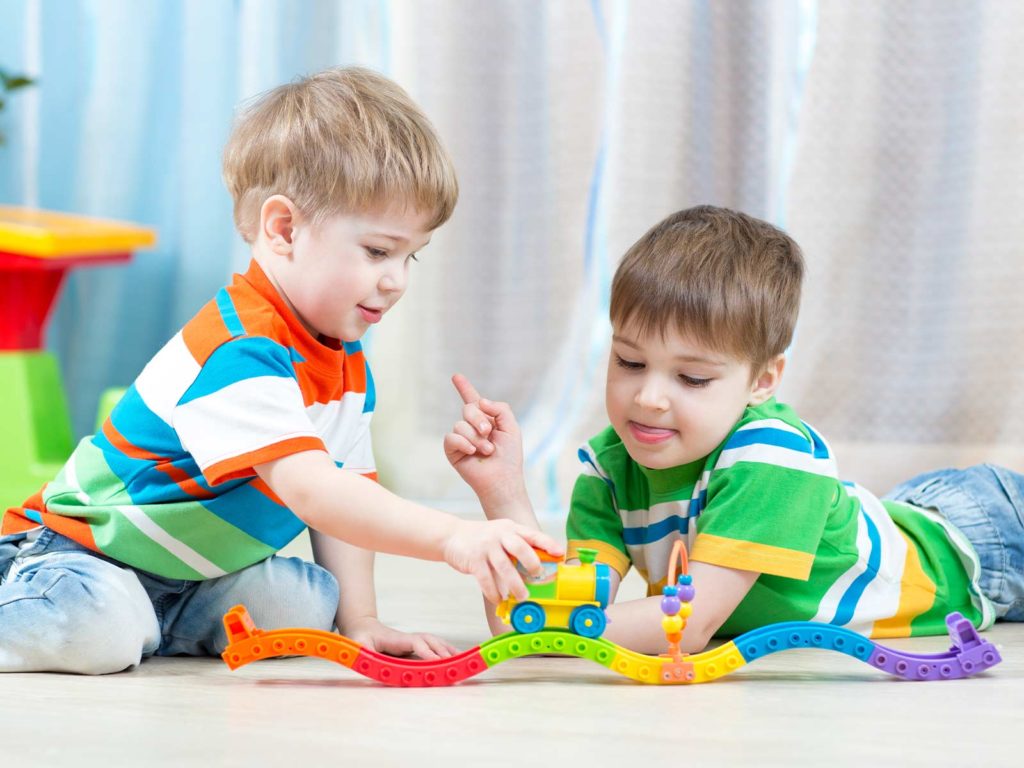Learning to share takes time, and there will be struggles along the way. You can encourage and support your kid in learning to share, but remember a lot of this skill takes time to develop so don’t get discouraged. Here are a few suggestions to try!

Young children, ages 1-3, have not yet developed the ability to put themselves in another person’s shoes, they are still focused on what they want. These skills develop between 3 ½ and 4 years old in most kids. Knowing this can help ease your frustrations with a 2-year-old, who may resist sharing.
As kids learn to share, support them on their journey:
- Stay calm – you can explain what you saw happen in a simple way to help them understand the situation. “Oh goodness, Sam and Andy both want the same toy to play with! Sam, you picked up that toy, and then Andy wanted it and took it from you. Now both of you are crying. Should we try taking turns with that toy so you each get a chance? Who will be first? How about Sam? Then Andy can have a turn next.”
- Keep them safe – Kids might get frustrated and start grabbing, hitting or throwing things when they struggle over a toy or book. Make sure you step in and stop their behavior, so no one gets hurt. A simple statement like “We do not hit each other” can be used.
- Use a timer – Set it for sharing equally, or allow one kid a longer playtime with a favorite toy.
- Put the toy in time-out – If the conflict isn’t resolving itself, announce to the kids that the toy is going to have a time-out since it is causing so much trouble! This disassociation from themselves might be more understandable to some kids, as they watch the toy leave the play area. Don’t forget that once the toy comes back into play, you can remind the kids that the toy can only stay if they share it nicely.
- Give them a couple choices – “Would you like to play with this toy or this toy, while you wait your turn with that one?”
- Acknowledge their emotions – Reassure your kid that you understand that they are mad or frustrated and want to help. Repeat to them, “Kids who share have twice the fun!” so that they start to understand kids who share their toys get to play with more things, as other toys are also shared with them.
- Share the decision making – If there is only one cookie left, have one child break the cookie in half, and let the other kid choose what half they each get. Next time give them the choice, “Who wants to break the cookie in half this time?”

